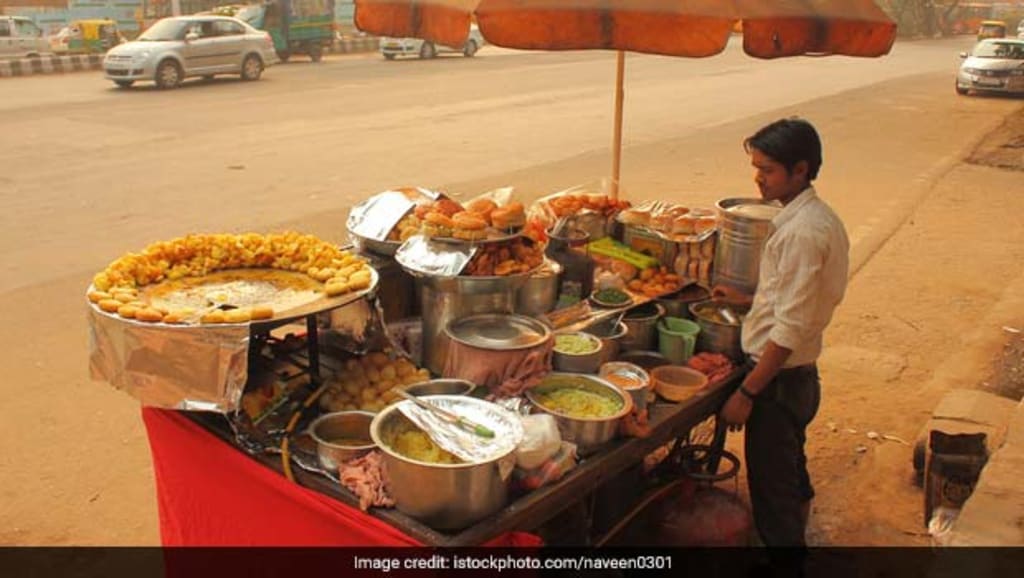Street Food is Not Hygiene is False
Making Money using Street Foods

Street food can be just as safe and hygienic as food from a restaurant, as long as vendors follow proper food safety guidelines and regulations. Street food vendors are subject to the same health and safety regulations as restaurants, and they are regularly inspected by health department officials.
Street food vendors are also increasingly using innovative methods and technologies to maintain hygiene like using disposable plates, utensils, and gloves, using portable handwashing stations, and using insulated containers to keep food at the correct temperature. Many street food vendors also take great care in sourcing their ingredients from reputable suppliers and preparing their food in a clean and sanitized environment.
It's important to note that as a consumer, you should also take your own precautions when purchasing street food, such as checking the vendor's hygiene and sanitation practices, looking for signs of food spoilage, and making sure the food is cooked and served at the appropriate temperature.
In summary, street food can be hygienic and safe to eat as long as vendors follow proper food safety guidelines and regulations, and consumers take the necessary precautions.
Street food can be a profitable business venture, as it typically has low overhead costs and can be easily scaled up as the business grows. Here are a few steps you can take to start a street food business:
Research: Look into the regulations and requirements for street food vending in your area, such as permits and health codes.
Develop a concept: Decide what type of street food you want to sell, whether it be traditional dishes, fusion cuisine, or a unique creation. Make sure your concept is unique and stands out from the competition.
Create a business plan: Outline your business goals, target market, and financial projections. This will help you secure funding if needed.
Find a location: Look for a high-traffic area with a lot of foot traffic, near public transportation or other popular venues.
Invest in equipment: Purchase or rent a food truck or cart, as well as any other necessary equipment such as a generator, cooking equipment, and utensils.
Get the word out: Advertise your business through social media, flyers, or word of mouth.
Be consistent in the quality of food and service.
Build a brand and reputation through customer service, unique food offerings and building relationships with local customers.
Keep in mind that starting a street food business is not easy and requires a lot of hard work and dedication. It is important to have a solid business plan and to be able to adapt to the changing market conditions.
The requirements for street food vending vary depending on the location and jurisdiction. However, here are some common regulations that street food vendors may need to comply with:
Permits and licenses: Street food vendors may need to obtain a permit or license to operate in a specific area. This may include a food handler's card, a vendor's license, or a business license.
Health and sanitation: Street food vendors are subject to the same health and sanitation regulations as restaurants. They may need to pass regular inspections by health department officials and comply with rules regarding food storage, preparation, and handling.
Insurance: Street food vendors may need to carry liability insurance to protect themselves and their customers in case of accidents or injuries.
Food safety: Vendors are required to follow food safety regulations set by local health department, these regulations include storing food at the correct temperature, properly handling and preparing food, and preventing cross-contamination.
Equipment: Street food vendors may need to have certain equipment, such as a food truck or cart, a generator, cooking equipment, and utensils.
Zoning: Street food vending is typically restricted to certain areas and may not be allowed in certain neighborhoods or business districts.
Food waste management: Vendors should have proper disposal methods for food waste and should not litter the surrounding areas.
Fire safety: Street food vendors may need to have fire extinguishers and comply with fire safety regulations.
It's important for street food vendors to research and understand the specific regulations and requirements in their area in order to comply with them and operate their business legally and safely.
About the Creator
Enjoyed the story? Support the Creator.
Subscribe for free to receive all their stories in your feed. You could also pledge your support or give them a one-off tip, letting them know you appreciate their work.





Comments
There are no comments for this story
Be the first to respond and start the conversation.